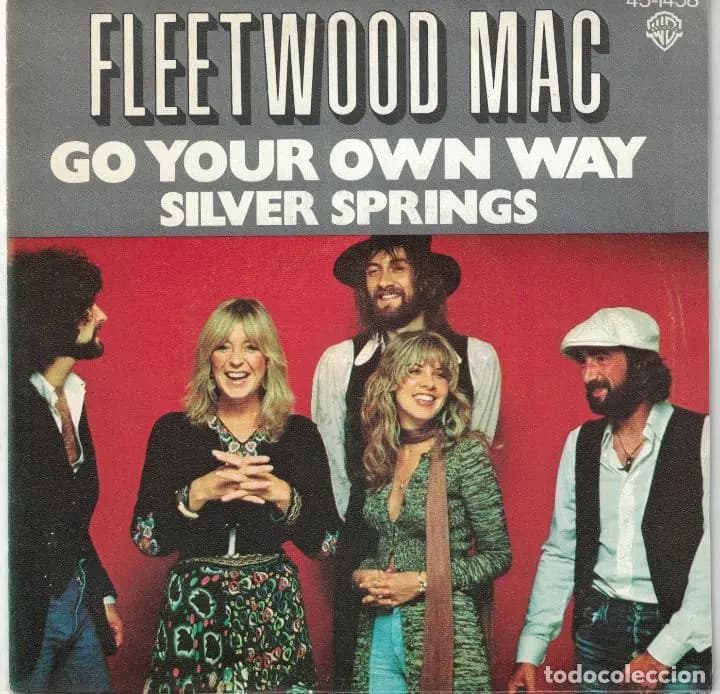
Fleetwood Mac’s “Go Your Own Way”: A Defining Anthem of Heartbreak and Independence
Released in December 1976 as the first single from the legendary album Rumours, “Go Your Own Way” by Fleetwood Mac is not just a song—it’s a statement, an anthem, and a powerful narrative of emotional turmoil. Written by Lindsey Buckingham during one of the most tumultuous periods of the band’s history, this track marked the band’s first foray into the Top Ten in the United States, solidifying their place in rock history.
At its core, “Go Your Own Way” is a deeply personal reflection of Buckingham’s breakup with his bandmate and then-lover, Stevie Nicks. The song’s raw, unfiltered emotion is palpable, and it resonates with anyone who has ever experienced the pain of separation. The lyrics, penned in what Buckingham describes as a “stream of consciousness,” were not crafted with careful consideration but rather poured out of him as a raw expression of his feelings. This spontaneity is what gives the song its genuine, almost cathartic quality.
Musically, “Go Your Own Way” was groundbreaking in its construction. The track was recorded over four months in three different studios, a process that was anything but straightforward. Each instrument was laid down separately, with layers of overdubs building the song to its final form. This method of recording, while unconventional, added a certain complexity and richness to the sound that became a hallmark of the Rumours album.
The song’s driving beat, punctuated by Mick Fleetwood’s distinctive drumming, and the fierce, almost desperate strumming of Buckingham’s guitar, perfectly mirror the song’s lyrical content. There’s a tension in the music that underscores the pain and frustration in the lyrics, creating a powerful juxtaposition of sound and emotion.
When “Go Your Own Way” was first presented to the band and their producer, Ken Caillat, it was met with some skepticism. The initial version was rough, with Buckingham strumming his guitar with such intensity that it almost didn’t seem musical. However, as the song evolved through the recording process, it became clear that this was something special—a track that would not only capture the spirit of the time but also endure for generations.
And endure it has. Rolling Stone magazine recognized the significance of “Go Your Own Way” by ranking it among the 500 greatest songs of all time, a testament to its lasting impact. Even decades later, the song continues to resonate with audiences, a testament to the timeless nature of its themes and the masterful way in which they were expressed.
In the broader context of Fleetwood Mac’s discography, “Go Your Own Way” stands out not only as one of their most successful singles but also as a defining moment in their career. It captures the essence of the band’s dynamic—filled with love, pain, and incredible talent—and serves as a reminder of how great art often comes from the most challenging of circumstances.
For fans of Fleetwood Mac, and indeed for anyone who appreciates music that speaks to the soul, “Go Your Own Way” is more than just a song. It’s a piece of history, a snapshot of a moment in time when emotions ran high and creativity soared. It’s no wonder that it remains one of the most beloved tracks in rock history.